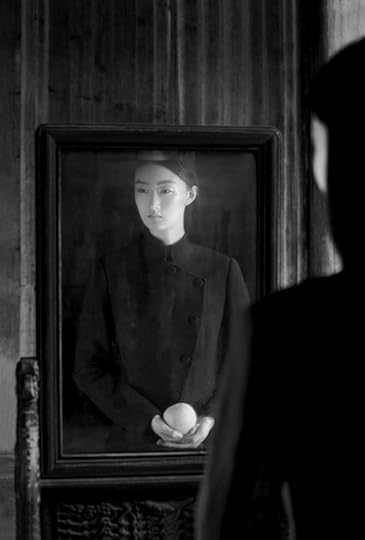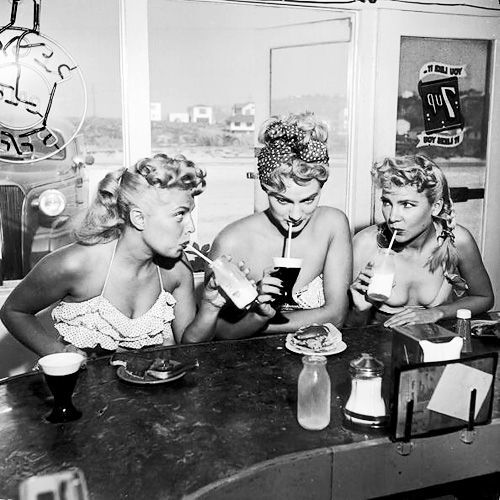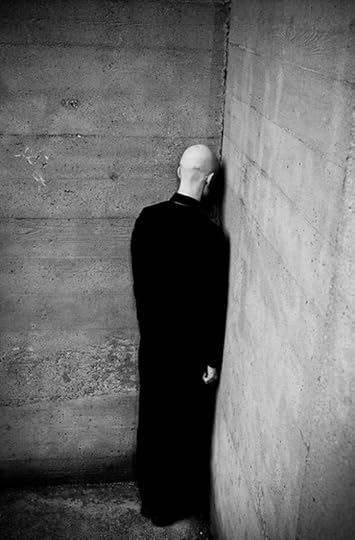What Does It Mean to Be an Outlier?
out·li·er
NOUN
a person or thing situated away or detached from the main body or system:“less accessible islands and outliers”a person or thing differing from all other members of a particular group or set:“an outlier in Faulkner’s body of work” · “then there are the corporate outliers, people who just don’t fit into the culture of the company” She doesn’t seem like a joiner.
She doesn’t seem like a joiner.I know several people who revel in their outlier status. They genuinely don’t enjoy being part of a group – at least not one that isn’t loose and sparsely populated by people who themselves bristle at affiliations, whether they be political, professional, or simply hobby related. It’s not that these confident nonconformists don’t like people, necessarily. According to their own self-reporting, many outliers have very strong interpersonal relationships, like a ride or die best friend, or a close marriage and a loving, dynamic rapport with their children. In fact, many people who identify as outliers say they simply prefer the mile deep to the inch wide and are perhaps at their core suspicious of conformity. Even when it comes to issues that are close to their hearts and align with their values.
I think about what it means to be an outlier a lot, because I probably am one. I say “probably” because I’ve never really been comfortable with that moniker. I feel conflicted about feeling like the perpetual observer, the outsider who never quite fits in. I don’t even know for sure that other people view me this way. It might be my own distorted view of myself. One born of being a child of immigrants, of being a fantasist, of liking long walks taken alone and the solitary nature of cold winters, of preferring books and movies to real life, of thinking Spam actually tastes pretty good. Since many of you who are reading this are probably nodding along, saying “Yes, that’s me, too,” I question whether this makes us outliers at all. I mean, if a lot of people consider themselves outliers, or at least as having outlier tendencies, then does being an outlier even exist?
Maybe the real question is this: What does it really mean to have something in common with a group of individuals?
 They’re all blonde and enjoy liquids.
They’re all blonde and enjoy liquids.When I lived in Prague in the 1990s, the only obvious thing I had in common with the friends I made there – people I consider my people to this day – was our spirit of adventure. Each one of us had packed our bags and bought a one-way ticket to the wild, wild east, having no other plan than to experience whatever came our way. To inhale the “sweet gas of life,” as author Tom Robbins put it. We were middle class state school kids and rich Ivy Leaguers, poets and lawyers, city slickers and the smallest of small towners, the popular kids and the nerds.
It was the only time in my life when I felt like I was a natural part of a group. I didn’t even have to try to fit in and I rarely felt out of my element, even though my friend group was a mishmash of people who often didn’t even share the same country and culture. We were American, British, Scottish, Canadian, Irish, Australian, Czech, Croatian, German, French, Korean and Californian.
Before then, since then, I have mostly found myself nose to the glass watching people in other groups cavort. The ease with which they fall in together, their shared sense of humor, their similar political views, literary tastes, fashion sense and recreational activities all trigger within me a complex brew of envy and longing. For these group members, it seems to me every day has the tempo and tenor of a garden party. One made of hearty, harmonious agreement. I’m quite sure this isn’t really the case and that the people who are part of these groups struggle with all sorts of things invisible to me. The office politics, the falling out with friends over affairs of business or of the heart. The digs, the one-upmanship, the keeping up with the Joneses, the toxic in-group cultural bugaboos that can bring an individual down. For all I know, most of these folks feel a deep sense of loneliness and isolation within their own ingroups, even if they’d never in a million years consider leaving them to seek out new friends.
 We all look great in in bikinis – let’s hang out!
We all look great in in bikinis – let’s hang out!But among all the convivial people in my sights, I’ve been especially cognizant of those who defy characterization altogether; the ones who are able to leave and join new groups with apparent ease, essentially never seeming like outliers no matter where they are or with whom they’re socializing. In my observations, most people like this aren’t fakers or habitual charmers, but they are very adroit at finding out what they do have in common with others and leaning into that hard. I think about the army brat or corporate animal. Each time they move to a new state or country they have to do their utmost to fit in, find people with whom they can laugh, confide in, share time.
What most of these on-the-move types have told me, is that they often find themselves onboarding to different groups depending on how, in their estimation, they intersect with the culture of their new environment. It doesn’t always work as well as they hope. A friend of my daughter’s, a diplomat’s son who moved roughly every two years during his entire youth, explained to her how strange it was to go to High School at one of the international schools in Dubai. How poor he felt there, even though he knew that by any reasonable standard he was a comfortable, fortunate, and worldly young man. Yet in a class where every girl sported a Birkin Bag and one of his peers – I kid you not – drove a gold-plated Ferrari, he felt like a scrappy outlier who was never going to be able to keep up.
I can relate to his story of how a mere change in location has the ability to distort our perceptions of ourselves like a funhouse mirror. I vividly remember the discombobulating feeling of being universally liked at one school, welcome at every lunch table and as a participant in any playground game, then shunned when I transferred to a different school. Nothing about me had changed, and my new school was just across town, not on the other side of the world. It wasn’t even noticeably different on a socio-economic level, as both schools were private, Catholic, and catered mostly to middle and upper middle-class kids. But an altercation I had with a mean girl on my first day made me persona non grata.
“Can I play?” I’d asked the girl and her group of friends. They’d started a game of Chinese jump rope at recess. I’d approached them carrying a full packet of lemon drops my grandmother had packed in my lunch.
“Only if you’ll give us all your candy and be our slave,” the mean girl replied.
My rejection of her terms – I actually thought she was kidding at first – violated some unwritten social contract at that school, and I found myself as the social outcast of my third-grade class. It was the one time I was an accidental and totally involuntary outlier, and to this day, I shudder thinking about it.
 Relate.
Relate.According to Malcolm Gladwell, who actually wrote a book about outliers, we humans are not the independent thinkers we’d like to think we are. He says, “The values of the world we inhabit and the people we surround ourselves with have a profound effect on who we are.”
I certainly felt that at the school where no one would talk to me. Everything about me seemed to change in that one awful year and I was powerless to stop it: my posture, voice, temperament, and confidence shifted dramatically. I felt tongue-tied all the time and unsure of my point of view. I was even sick more often. This was, as I look back, a turning point. A time when all I had left to me was my interior world and I inhabited it completely. In one fell swoop, after a single encounter with the wrong girl, I was made aware of what it truly means to be on the outside. I also became suspicious of groups, but it didn’t stop there. That experience made me question my own nature and my very ability to make friends. It took everything I had to pull myself back together.
 3rd Grade.
3rd Grade.I have to wonder if this was the experience that made me start considering myself something of an outlier? Even more so than being an oddball immigrant, an interior person, fantasist, and Spam lover. It’s hard to say. It’s certainly possible that most self-identifying outliers have faced similar social dilemmas; some pivotal event that made them reconsider this whole group thing and start turning inward. Maybe most outliers don’t start out as socially recalcitrant at all. Not in our hearts, no matter how much we might protest to the contrary. The very fact that most of us even endeavor to be part of any group, which is a separate issue from actually being good at it, is evidence of that. That we’re capable of being deeply wounded by rejection indicates that we’re pack animals after all. The runts of the pack, probably, the ones who are always a bit out of step, but still bona fide members.
“We allow our ignorance to prevail upon us and make us think we can survive alone, alone in patches, alone in groups, alone in races, even alone in genders.” –Maya Angelou






